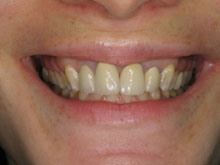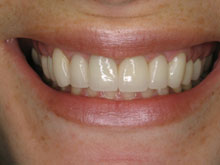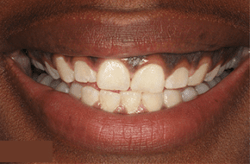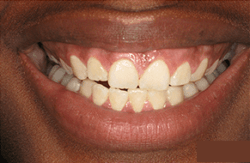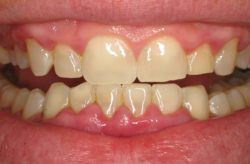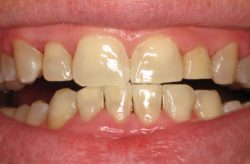Low Dose Antibiotics
Recently there has been interest in the use of low dose antibiotics. The dose is so low the drug does not act to kill bacteria, but rather to change the way the body responds to infection.
One interesting effect of certain antibiotics is they not only kill the bacteria that may cause periodontal disease, but they also reduce the body’s production of collagenase, an enzyme that destroys gingival tissues. We all need some collagenase as older tissue is removed and replaced with new tissue. However, in periodontal disease there seems to be an overproduction of collagenase, causing the body to destroy healthy gum tissue. The antibiotic doxycycline was found to combat these enzymes, even in doses so small that there was not an antibiotic effect. The advantage of the smaller doses is a great reduction in the chance of resistant bacterial strains forming, and in fewer side effects.
Periostat is a capsule of 20mg of doxycycline, and two clinical studies have shown that patients who take 2 capsules daily have a reduction in clinical inflammation. The studies were limited to 9 months, and so there is no official recommendation to take the product for a longer period. From a practical standpoint it seems that Periostat can be taken indefinitely. However, some preliminary work indicates that there is a positive residual effect for 3 months after stopping the drug, and so some practitioners recommend taking Periostat three months on, three months off. The daily 40mg doses are so low as not to qualify as an antibiotic, and there is no known effect on the pocket bacteria. Thus Periostat must be used in conjunction with other therapies that address bacterial removal. Indications for Periostat are generally seen in recall patients who are not responding well, and have generalized inflammation in spite of reasonable oral hygiene.

